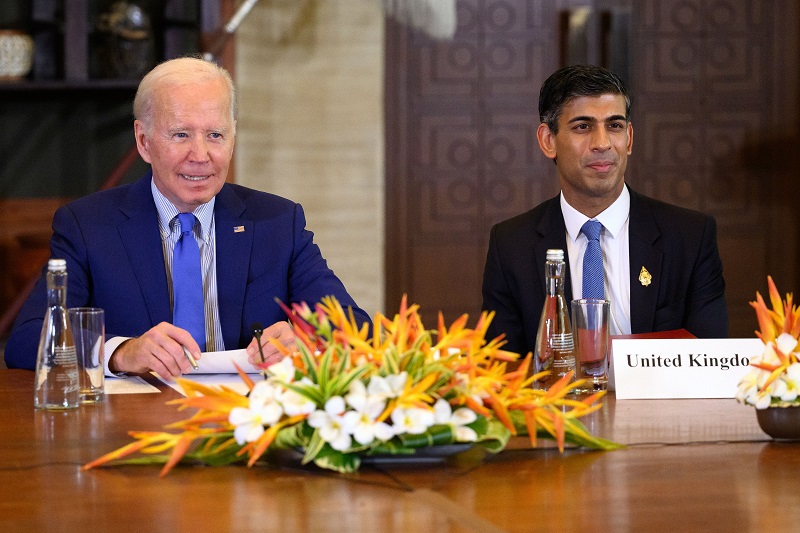
Navigating the Transatlantic Alliance Beyond Personalities
Strategic interests and a shared past have historically served as the foundation of the British and American partnership. The more significant connection between the two countries is still strong, despite the occasional effects of personal relationships between leaders. The author of this opinion piece contends that the fundamental relationship between the United States and the United Kingdom is unaffected by any interpersonal conflicts between Prime Minister Rishi Sunak and President Joe Biden. However, it draws attention to Sunak’s difficulties in harmonizing the UK’s trade and economic policies with those of the Biden administration, particularly given their divergent stances on matters like Brexit and economic interventionism.
The Strength of the Transatlantic Alliance
Deep-seated and lasting, the US-Britain alliance transcends the terms of individual governments. Personal affinity can influence the relationship, as seen in instances like Margaret Thatcher’s support for Ronald Reagan during the Cold War or Tony Blair’s backing of George W. Bush in the Iraq War. Understanding that the alliance’s strength comes from its adherence to common ideals, defence coordination, and intelligence sharing is crucial. These enduring facets of the relationship ensure the partnership continues even when there isn’t a solid personal connection between the leaders.
Keep Reading
Divergent Economic Outlooks
The differences in how Prime Minister Sunak and President Biden handle trade and the economy might pose problems. Unlike Biden’s emphasis on governmental assistance for green technologies, tax benefits for foreign investment, and reorganizing supply chains for national defence, Sunak has more laissez-faire economic instincts and traditional conservative budgeting. These fundamental differences between the two leaders’ views on the future course of the world economy separate them on policy issues.
Brexit and its Implications
Brexit is a significant point of controversy. President Biden has made it clear that a trade agreement with the UK is not a priority, in contrast to what proponents of Brexit had predicted would be more lucrative trade routes and a tighter relationship with the United States. Furthermore, Britain would probably suffer from any future agreement as the junior partner. This fact, which Sunak must acknowledge, lowers the UK’s negotiation leverage and its post-Brexit ambitions.
The Importance of European Relations
This essay emphasizes how important it is for Sunak to build trusting ties with European decision-makers and craft a robust European foreign policy. Without a doubt, Brexit has reduced Britain’s power within the EU and, as a result, the spaces where important policy decisions are taken. To influence the direction of British foreign policy, Sunak must broaden his connection with other European peers while concentrating on topics like small-boat migration across the English Channel and improving UK-EU ties.
In conclusion, while occasionally significant, a British prime minister’s and a US president’s relationship is not the only factor in determining how strong the two nations’ partnership is. The real ties between the US and the UK are still strong, especially in intelligence, security, and defence. However, Prime Minister Sunak faces difficulties in bringing the UK’s objectives into line with those of the Biden administration due to different economic outlooks and the lessened influence of Brexit. Sunak must prioritize developing ties with European leaders to boost Britain’s presence on the world stage, stepping beyond the constraints imposed by Brexit ideology. Recognizing shared ideals and objectives that go beyond the personalities of particular leaders is ultimately what gives the transatlantic alliance its enduring power.




